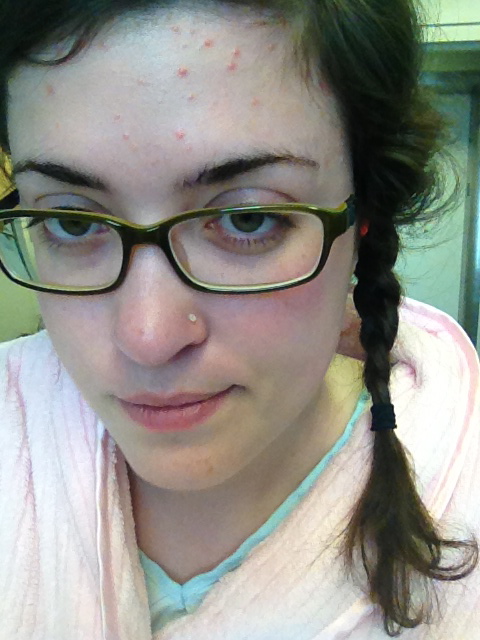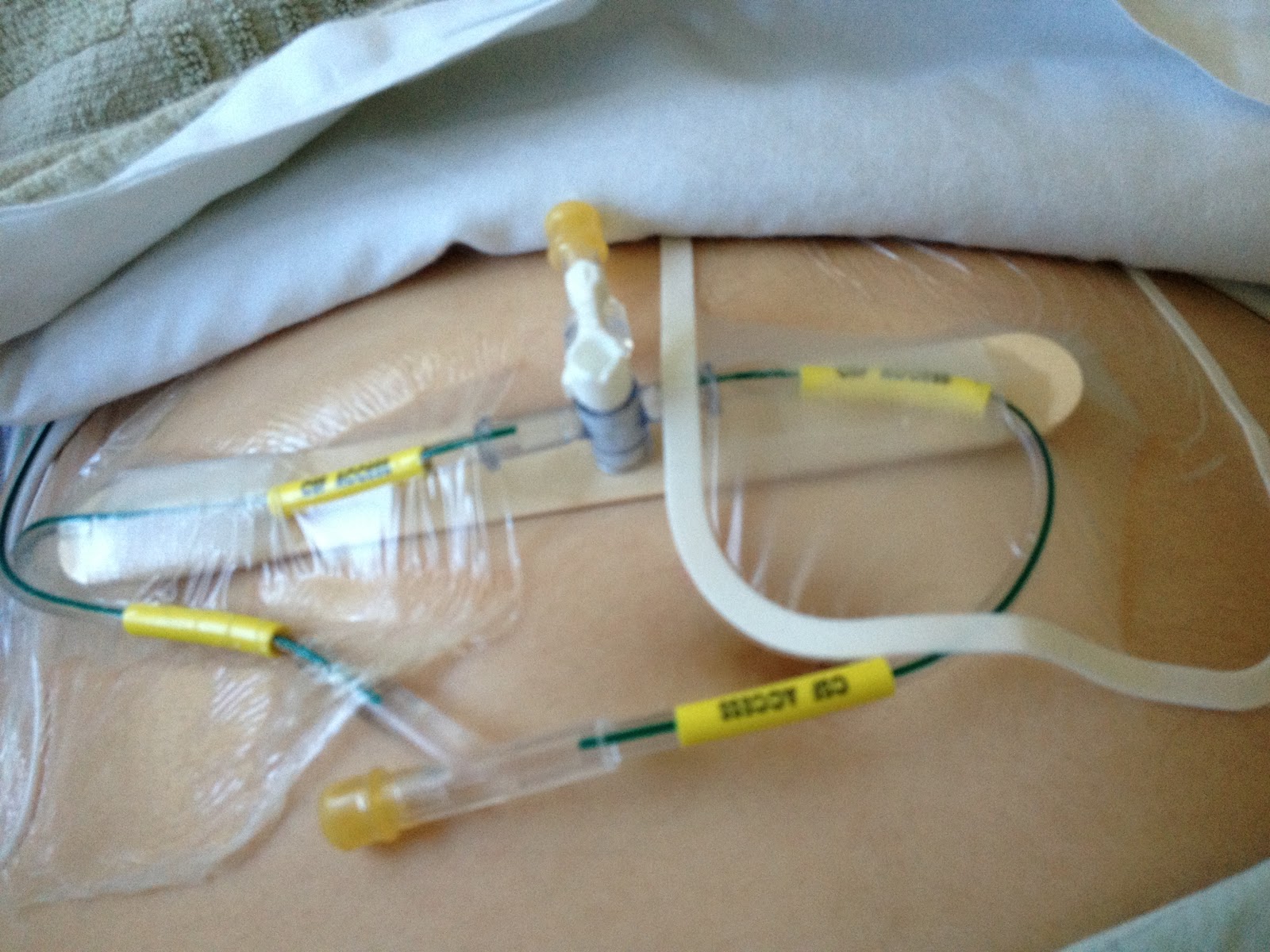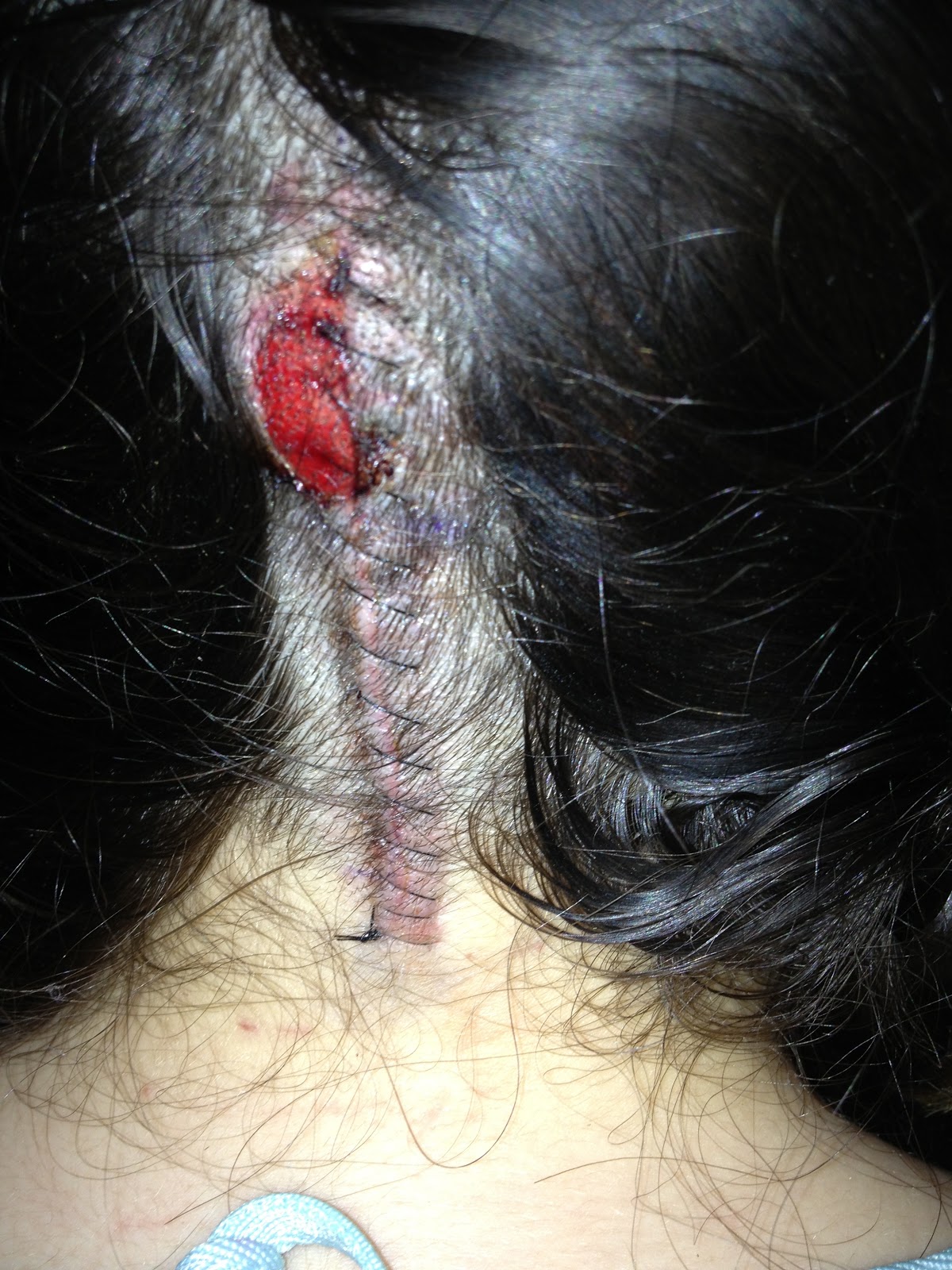Surgery & Hospital Stays
1. Two french braids: I owe this discovery to a blog I found. I had a suboccipital craniotomy, but I'm sure this could work for other types. For girls (or guys with long hair) wear your hair in two french braids. Keeps them from shaving more than they have to (because everything is out of the way and neat), plus it keeps your hair from getting too matted with blood and nasty. After surgery two braids or pig tails is the most comfortable way to wear your hair for a suboccipital craniotomy.
2. Expect a Halo: If you have the same surgery as me you will have a halo brace to keep you're head up during surgery. They leave nasty knots on your head.
3. Nausea: It's normal to be nauseous after brain surgery (or really a lot of surgeries). There are medications that can help so request them. Also if you're hungry request chicken or vegetable broth, crackers, jello, etc. Don't eat anything heavy.
4. Ear plugs: After surgery (and if you develop chronic pain or migraines) you will be super sensitive to sound and it will increase your pain. Ear plugs will be your new best friend.
5. Sleep Mask: You will also be sensitive to light and a sleep mask may help you rest more.
6. No TV/reading/etc.: Trust me. I tried to watch television after surgery and it made me sick. Sensory overload. Give your head a rest for a while. It just got cut into.
7. Ice pack: Request an ice pack. It's nice to have one rest on your forehead.
8. Say Yes to Cucumbers wipes: These are the best for long hospital stays. A great way to feel clean when you don't get many showers, or, like me, you only get bed baths.
9. Dry Shampoo: Another great tool to keep your hair from smelling like nasty sweat and hospital without having to take a shower.
10. Sports Bras & Underwear: For long hospital stays you really only need underwear (hospital gowns), but if you're a lady and you insist on wearing a bra make it a sports bra a size up so it's comfortable.
11. A cuddly stuffed animal: to keep you company of course!
12. Get up as much as you can: Walk as much as possible! It keeps your strength up, wards off constipation and clots, and is just overall good for your body. If you need help ask a nurse or a tech to walk you.
13. Pain meds: Call for pain meds before it gets too intense. Outside of the hospital be careful not to take too many pain meds (I'll tell you why later).
16. Call don't fall: Always call a nurse for help, or have a friend or family member help you in and out of bed.
Steroids
This section is for if you're prescribed steroids, and how to deal with the side effects.
1. Maybeline Cover Up Stick: A possible side effect of steroids is a rash. It looks like a ton of tiny little acne. It can be itchy and sometimes hurt, but don't pick at it or it will scar. It goes away pretty quickly after stopping steroids, but in the meantime the Maybeline cover up stick is the best cover up for it.
2. Fans: Another common side effect is hot flashes. They are miserable and your best defense is as many fans possible pointing at you. As long as you can stay cool the flashes won't bother you.
3. Clothes 1-2 sizes up: Sorry, but weight gain also happens. I gained 20 lbs, some people gain more. Just be aware. The weight doesn't go away as easily as the acne, you'll have to get back into exercise and eating right once you are able. The reason weight gain is a possibility, is due to the massive cravings. You'll be hungry constantly and for food that isn't necessarily healthy. You can try to fight them, but they're pretty intense. You also retain a lot of water with steroids.
4. Water: Dehydration is a bigger possibility with steroids. The hot flashes make you sweat a lot so you lose a lot of hydration that way. Keep drinking!
7. Antacid: Your doctor will probably prescribe you a prescription antacid, but keep some TUMs nearby. Steroids can cause acid reflux. Also stick to eating bland foods. Any amount of spice (even bell peppers) will make you reflux.
8. Patience: There are a lot of nasty side effects with steroids and it can really get you down. Be patient and focus on getting better.
At Home & Recovery
1. Memory Aides: After brain surgery, and with certain medications, you'll notice some memory difficulties so you'll need a few tools to help you out. A) Notebook to write down instructions from doctors, schedules, etc. B) Pill organizer to help you remember when to take your medication.
2. Ear plugs & Sleep mask: for the same reason you need it in the hospital.
3. Rest & Water: Sleep. Don't be ashamed if you need one or multiple naps a day. You had brain surgery, you need plenty of rest. And once again always drink water. You can never have enough water.
4. Walk: Whenever you can take a walk. Walking is good. It prevents muscle atrophy, bed sores, constipation, and blood clots. Walk when you can.
5. Ice pack & Heating pads: Ice packs for headaches and heating pads for muscle pain.
6. Be Koool Soft Gel Sheets: These are great in replace of an ice pack. They stick on your head and keep you cool. Originally intended for fever relief for children (although I heard they have a migraine one) it feels like you have an ice pack on your head without the mess.
7. Melatonin: Sleep can be difficult sometimes so adding a melatonin supplement can be useful. Ask your doctor if it's ok for you to use.
8. Miralax: Trust me on this. Surgery can cause constipation.
9. Try to ween off narcotics: As quickly as you can (without discomfort) try to ween yourself off the narcotics. If you take them for too long they can cause rebound headaches, which are extremely painful.
10. Pillows: Pillows are great for positioning in bed, especially if you are spending a lot of time in bed. I always slept with a pillow under my knees and under my calves so my heels hung off. This can prevent skin break down on your heels.
11. More patience: Give yourself time to heal. Be patient. The term "Well it isn't brain surgery" does not only apply to the difficulty of performing the surgery, but also the difficulty of recovering from surgery.
Doctor's Appointments
Some advice for your appointments and interactions with doctors.
1. Make lists: Keep track of symptoms, side effects, and concerns. Make timelines of events including medications. This will be helpful to guide your conversations.
2. Pay attention: Be aware of your body and notice your symptoms and side effects and changes.
3. Be an advocate: Stick up for yourself.
Incision Care
1. Itching: It will itch like crazy. To help with this dab your incision with a cold wet paper towel, or if your doctor is ok with it, put some neosporin on it. Watch out though, you don't have all of your feeling there and you can easily tear up your skin or pull hair out by scratching.
2. Nerve pain: When your nerves start regenerating you will feel some pain that feels like an intense electric shock. Light tapping on your head can help relieve this. The pain doesn't last long.
3. Gauze: When you sleep, if you have an incision you have to lay on (like the back of your head), lay with some gauze under your incision. Keeps your pillow case and incision clean.
General things to look out for
1. Side effects/reactions to medication: Some medication can cause troublesome side effects. Another reason to pay attention to yourself.
2. Dehydration: Another reason to drink drink drink. Some signs of dehydration I experienced are tachycardia (fast heart rate), shortness of breath, constipation, decreased urination, etc.
3. New Pain: Another reason to pay attention. New pains can be signals of changes in your head or other problems.
4. Ask your doctor: Ask your doctor what to look out for. When should you call for help?
Be patient, keep your spirits up. Brain surgery is tough. All major surgery, chronic pain, chronic illness is tough. Allow yourself to cry or feel down, but don't let it take you over. Everyone's recovery time is different. Don't get onto yourself if you don't recover as quickly as you had hoped. Seek others in the same situation as you. It helps to talk to people who have been through what you are going through.
I really hope this helps someone someday!



















































